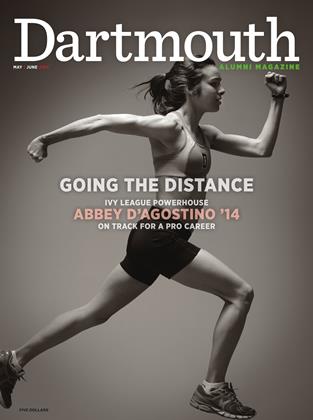STOLTZ DRAWS ON HER OWN EXPERIENCES to find support and healing for more than 400 survivors of sexual violence and human trafficking through sister enterprises ploome and REQ. 1. an activist since her time at Dartmouth, Stoltz worked as a translator in human trafficking shelters in Russia and as a victim advocate in Kyrgyzstan. There she was brutally assaulted by a gang of men and then survived an abduction attempt—experiences that led her to develop a fitness and arts program for herself that became the basis of reQ.1. “i clung to movement, writing and art as methods to overcome my despair,” she tells DAM. “with effort, support and time I grew strong, empowered and inspired.”
For-profit fitness studio Ploome provides the funding and programming for nonprofit reQ.1. “fitness is a powerful metaphor for change and speaks to the heart of the reQ.1 and ploome community,” says stoltz. “when your body feels capable and your mind is at ease, you remember that you have control over all other aspects of your life as well.”
Stoltz helps survivors of gender-based violence through reQ.1, with such programs as the popular Victory Kicks, where women exercise in recycled track shoes before trans- forming them into an art project that incor- porates paintings of personal healing. As a final step the shoes are filled with flowers as a reminder that “the process of healing is long but beautiful,” she says. although fitness is an important healing component for Stoltz, she encourages trauma survivors to honor their feelings and begin the process of healing that works for them: “There is no denying it, your world will never be the same. But the good news is your world can even be better, brighter and bigger than before.”
More than 1,400 residents in the Philadelphia area have supported or participated in trauma recovery through Stoltz’s program.
Workouts are secondary to the strength that results from working together to achieve a common goal.” “
 View Full Issue
View Full Issue
More From This Issue
-
 Feature
FeatureZoology
May | June 2014 By C.J. Hughes ’92 -
 Feature
FeatureGOOD HAIR
May | June 2014 By Ana Sofia De Brito ’12 -
 Feature
FeatureSEEKING TO BE WHOLE
May | June 2014 By Shannon Joyce Prince ’09 -
 Feature
FeatureONE PLUS ONE EQUALS THREE
May | June 2014 By Yuki Kondo-Shah ’07 -
 Sports
SportsOut of Nowhere
May | June 2014 By SARAH LORGE BUTLER -
 OUTSIDE
OUTSIDEConfluences
May | June 2014 By MICHAEL CALDWELL ’75
Minae Seog ’14
-
 Article
ArticleThe Art of Curation
JANUARY | FEBRUARY 2014 By Minae Seog ’14 -
 Article
ArticleOpen for New Business
MAY | JUNE 2014 By Minae Seog ’14 -
 Article
ArticleLOOK WHO'S TALKING
MAY | JUNE 2014 By Minae Seog ’14 -
 Article
ArticleLook who’s taLking
July | August 2014 By Minae Seog ’14 -
 SPORTS
SPORTSRoad Warriors
July | August 2014 By MINAE SEOG ’14 -
 Article
ArticleCharged Up
July | August 2014 By Minae Seog ’14
Article
-
 Article
ArticleBASKETBALL
February, 1910 -
 Article
ArticleTHE REV. A. W. CLARK NEW EPISCOPAL RECTOR
March, 1926 -
 Article
ArticleAlumni Award: Stephen L. Waterhouse '65, T'68
September 1993 -
 Article
ArticlePrinceton 13, Dartmouth o
January 1952 By FRANCIS E. MERRILL '26 -
 Article
ArticleLove Story
APRIL 1978 By MARK HANSEN '78 -
 Article
ArticleThe Faculty
November 1968 By WILLIAM R. MEYER

